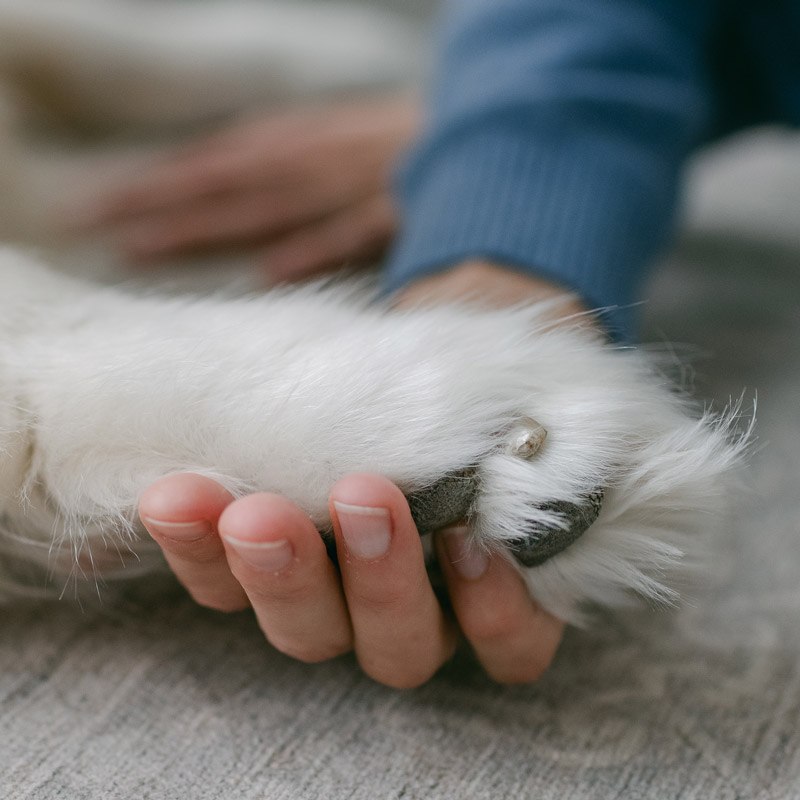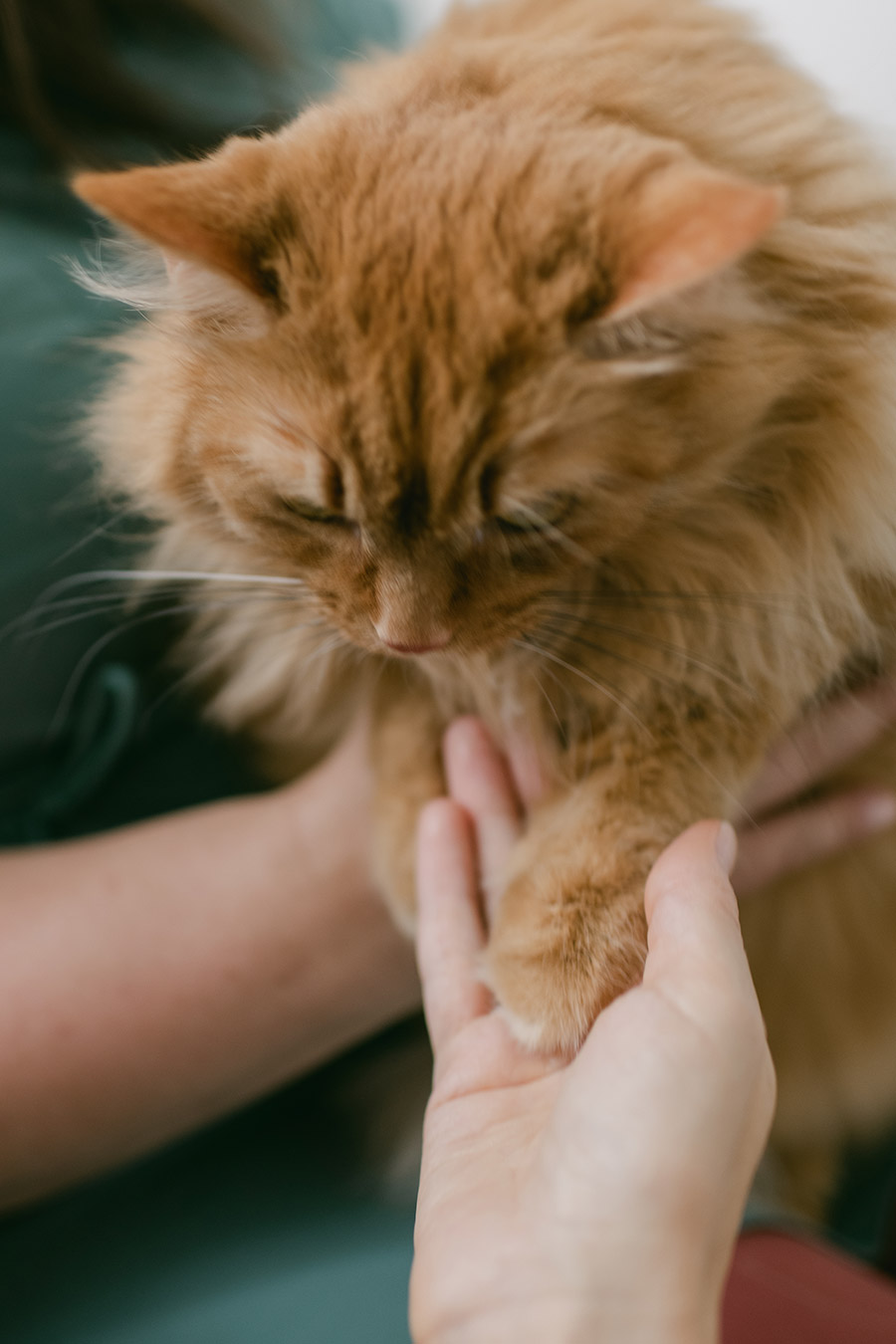Resources
To help you through a difficult time
This page offers resources to support pet owners in navigating their pet’s end-of-life journey. The links to download a PDF have the same information on this page, and you are welcome to download and share them.
End-of-Life Pre-Planning Guide
Preparing for the loss of a pet can be an emotionally challenging experience. Planning ahead allows you to make more thoughtful decisions and create meaningful final moments together.
Please use this as a guide for your pet’s end of life journey
Prioritize Quality Time with Your Pet
Make a bucket list. Enjoying activities with your pet can help you cherish your time together:
- Visit a favourite park
- Offer special food or treats
- Go on a road trip
- Snuggle in bed
Create lasting keepsakes. Build positive memories by documenting your pet’s unique personality:
- Do a photo shoot
- Record a video of your pet’s bark or meow
Plan a Peaceful Euthanasia
Think About What You Want Your Pet’s Final Moments to Look Like
Where will it take place?
- Vet clinic; a safe room offering privacy
- At home with a mobile vet; often preferred to reduce anxiety in your pet’s final moments
- Favourite place; consider a meaningful spot at home, or outdoors (e.g., in a park)
Who should be present?
- Family and friends
- Children; giving children the opportunity to be present is encouraged
- Other pets; recommended for pets that are bonded with the patient
What if Your Pet Passes at Home?
- Bring your pet to the vet clinic for aftercare arrangements
- Contact a mobile vet service to pick them up
- Home burial (please check local by-laws)
- Natural passing: While many owners hope for a peaceful natural passing, animals often experience significant discomfort in their final moments. Consulting a hospice veterinarian to develop a care plan can help keep your pet as comfortable as possible.
Aftercare Arrangements
Exploring aftercare options in advance will help you make the best choices for you and your family.
- Aquamation (water cremation): Warm water and salt reduce the body to ash; an environmentally friendly alternative to traditional cremation.
- Cremation: Flame-based heat reduces the body to bone, which is processed to become ash.
- Home burial: Please check your local by-laws.
Options for Cremation or Aquamation:
- Private: Your pet’s ashes returned in an urn.
- Communal: Ashes are not returned.
Special Items
Consider including organic items like flowers, treats, or a letter to be cremated or aquamated with your pet.
Memorialization
Creating a lasting tribute can help honour your pet’s memory and aid in the grieving process.
- Clay or ink paw and/or nose print
- Fur or whisker clipping
- Memorial jewelry
- Viewing and visitation; arrange a memorial ceremony with the crematorium or aquamation facility
Pet loss resources
Pet loss resources can help individuals process their grief, connect with others who understand their experience, and find guidance during a challenging time.
Pet loss websites and support groups
Ontario Pet Loss Support Group
https://ontariopetloss.org/
The Ontario Pet Loss Support Group is dedicated to offering emotional support to individuals grieving the loss of a pet. They hold free virtual meetings where individuals can discuss their feelings of grief with others. These meetings are often facilitated by trained volunteers or professionals experienced in pet loss bereavement.
Association for Pet Loss and Bereavement (APLB)
https://www.aplb.org/
The APLB is a non-profit organisation that provides support and resources for individuals grieving the loss of a pet. They offer a free online support chat room, paid access to video support groups, counselling referrals and educational resources.
SUPPORT CHAT ROOM | ONLINE SUPPORT GROUPS
Lap of Love
Lap of Love is a veterinary hospice group in the USA that offers resources to support pet owners during their pet’s end-of-life journey, including educational articles on pet illnesses, pet loss resources, and grief support.
Reserve your spot in one of their free pet loss support group sessions.
Argus Institute
https://vetmedbiosci.colostate.edu/vth/animal-health/?tag=loss
The Argus Institute is an organisation affiliated with Colorado State University’s Veterinary Teaching Hospital and they provide helpful resources on hospice care and pet loss.
Pet loss therapists
Connecting with a pet loss therapist can be helpful for grieving pet owners as they can provide professional support, offer personalised coping strategies, and give a safe space to process emotions and grief.
Rhiannon Jones, R.S.W., M.S.W.
Registered Social Worker, Psychotherapist in Hamilton, ONT
[email protected]
https://msha.ke/petgriefsocialworker
Specializing in pet bereavement, grief counselling and pet parent psychotherapy.
Chloe Oliver, R.S.W., M.S.W
Registered Social Worker; Psychotherapist in Toronto, Ontario
https://www.clearspaces.ca/pet-loss.html
[email protected]
Supporting individuals experiencing pet loss, grief, trauma, anxiety, and/or depression.
Both therapists are pleased to offer an initial complimentary virtual consultation, after which in-person or virtual therapy sessions can be booked. These services may be covered by Extended Health Care Benefits. Verify with your insurance company about your personal coverage.
Pet loss books
Going Home:
Finding Peace When Pets Die
by Jon Katz
Goodbye, Friend:
Healing Wisdom for Anyone Who Has Ever Lost a Pet
by Gary Kowalski
Losing My Best Friend:
Thoughtful support for those affected by dog bereavement or pet loss
by Jeannie Wycherley
Repairing the Heartbreak of Pet Loss Grief
by Carli Jeffrey
The Last Will and Testament of an Extremely Distinguished Dog
by Eugene O’Neill
When Your Pet Dies:
A Guide to Mourning, Remembering and Healing
by Alan D. Wolfelt PhD
Visit the Association for Pet Loss and Bereavement (APLB) recommended reading list.


